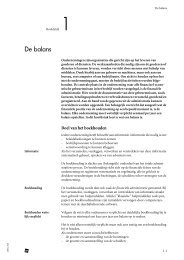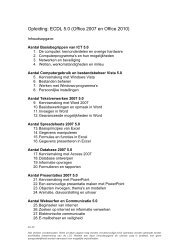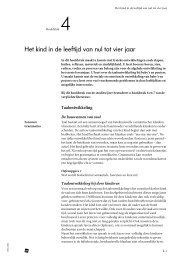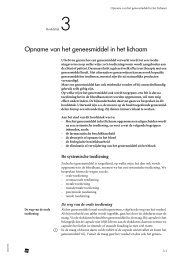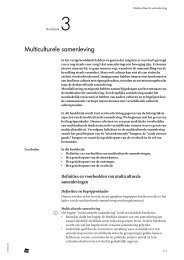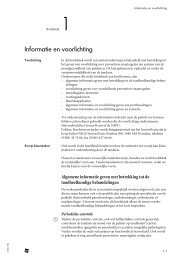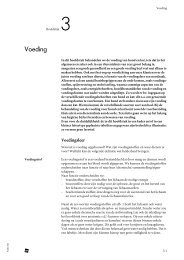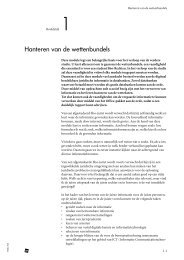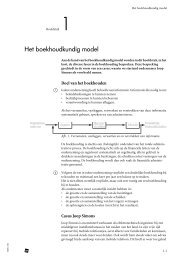Bekijk een hoofdstuk
Bekijk een hoofdstuk
Bekijk een hoofdstuk
You also want an ePaper? Increase the reach of your titles
YUMPU automatically turns print PDFs into web optimized ePapers that Google loves.
Introductions<br />
Voorbeeld:<br />
Stelling 0. People choose to plan their work at different times.<br />
0. = A, want stelling 0 slaat terug op tekstblokje A.<br />
1. In order to complete a task well, it is not necessary to deal with every detail.<br />
2. If you have too much to do, you may need to turn down work in the future.<br />
3. Any planning activity needs to take place on a regular basis.<br />
4. You should avoid giving additional time to a particular task.<br />
5. It is possible that some routine tasks do not need to be carried out.<br />
6. If you are overloaded with work, it is important to identify the cause.<br />
7. People at all levels perform time-wasting activities.<br />
Successful Time Management<br />
A.<br />
The secret of avoiding work pressure is thinking ahead. Every day you need<br />
to review your progress towards your objectives and decide how you can<br />
best use the time available to make further progress. You may find this is<br />
best done at the start of your working day, but some people prefer to make<br />
a planning just before they finish. Whichever you choose – and you may<br />
need to experiment to find what suits you best – find some way of fitting the<br />
activity into your schedule. Never say, ”I don’t have time to plan today.”<br />
B.<br />
Managers at all levels occasionally find they have taken on more than they<br />
can deal with. This is not a crime, but you must examine the reasons for such<br />
a situation and then determine what to do about it. Until the problem is<br />
resolved, most of your time and energy will go into worrying about the<br />
situation and you will feel unmotivated. Think too about how to prevent it<br />
happening again. Perhaps you need to be firm and avoid agreeing to more<br />
than is realistic.<br />
C.<br />
If a review of your working practices shows that you are too much of a<br />
perfectionist, do something about this. Modern definitions of quality refer<br />
to ”fitness for purpose”. If you bear this in mind, you may find it easier to<br />
persuade yourself to settle for an acceptable level of quality rather than<br />
perfection. When thinking about objectives and planning how to achieve<br />
them, consider how thoroughly you need to do something in order to meet<br />
your requirements. Unless you have spare time, do not spend extra hours on<br />
an activity in an effort to cover absolutely everything.<br />
D.<br />
If your review of a period of time shows that you are spending time on things<br />
that are not really necessary or important, then think hard about whether<br />
you can afford this time. Many people file unnecessary papers and attend a<br />
lot of unproductive meetings. Even top managers can be guilty of misdirecting<br />
their efforts by supervising subordinates too closely or failing to<br />
delegate. If you question the necessity of certain work, you may find it easier<br />
to avoid these misdirected efforts and this will better inform your planning<br />
in the future.<br />
676B1.FM<br />
1.11



